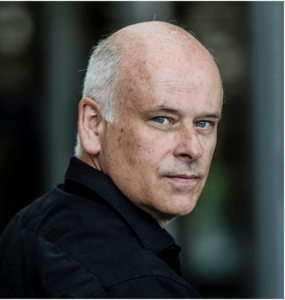
Robert Tampé, professor of biochemistry at the Biocenter and director of the Institute of Biochemistry at Goethe University Frankfurt, will present an Apex Lecture on March 7 at 12:00 p.m. CT in 208 Light Hall.
His talk, “From Antigens to Defense: Cellular Machineries in Quality Control and Adaptive Immunity,” is co-sponsored by the Department of Molecular Physiology and Biophysics.
Tampé’s research encompasses the structure and mechanism of membrane proteins, macromolecular complexes in antigen processing and presentation, cellular quality control and mRNA translation, viral immune evasion, chemical and synthetic biology, and nanobiotechnology. His laboratory specializes in the field of cellular biochemistry and investigates intracellular transport systems that are fundamental to the structure and function of the immune system.
In 2017, Tampé was awarded an advanced grant by the European Research Council for work focusing on how certain viruses evade the control of the immune system. In 2018, he received a €1.5 million grant from the German Research Foundation for a Reinhart Koselleck Project addressing the function of the immune system in and on the surface of cells. He was elected to the European Organization for Molecular Biology Structural Biology, Membrane/Transport, Immunology, in 2019.
Tampé earned his doctorate in biochemistry (summa cum laude) from the Technical University of Darmstadt in 1989. As a fellow of the Max Kade Foundation, he explored the mechanistic aspects of antigen presentation at Stanford University. From 1992 to 1998, he headed a research group at the Max Planck Institute of Biochemistry in Martinsried. In 1996, Tampé was appointed as an assistant professor in biochemistry at the Technical University of Munich and was further appointed as a Heisenberg Fellow of the German Research Foundation until 1998. Subsequently, he headed the Institute of Physiological Chemistry at the School of Medicine of the Philipps University of Marburg. Since 2001, he has been the director of the Institute of Biochemistry at Goethe University Frankfurt. He also holds honorary visiting professorships at the University of Oxford and Kyoto University. He is an elected EMBO member and he very recently received the Schaefer Scholar Research Award at Columbia University.
About the Apex Lecture Series
There are major inflection points in biomedical discovery that create new fields, new ideas, and new opportunities to impact human health. To engage with global researchers contributing to these inflection points, the Vanderbilt School of Medicine Basic Sciences launched the Apex Lecture Series in 2023. This school-wide seminar series brings scientists who are influencing the trajectory of their fields to engage with our scientific community on campus.
Lecture abstract
To elicit an effective immune response against pathogens and cancerous cells, MHC I molecules undergo an eventful journey from their biogenesis in the endoplasmic reticulum to their final decoding by cytotoxic T cells on target cell surfaces. Cellular machines, consisting of transporters, chaperones, and receptor clients, facilitate MHC I biogenesis, assembly, quality control, and final recognition. However, the mechanistic integration of the corresponding processes remains poorly understood. I will discuss the multichaperone-client interaction network of the MHC I peptide loading complex assembled on the transporter associated with antigen processing. By integrative approaches, we reveal the mechanistic underpinnings of antigen transport, epitope proofreading, quality control, and final release of MHC I complexes. In addition, the structural and mechanistic insights into the T cell receptor complex bound to a tumor-specific human class I pMHC will be discussed, including the functional impact of connecting peptides and sterol lipid for complex assembly.